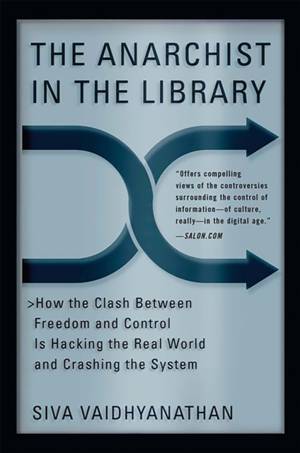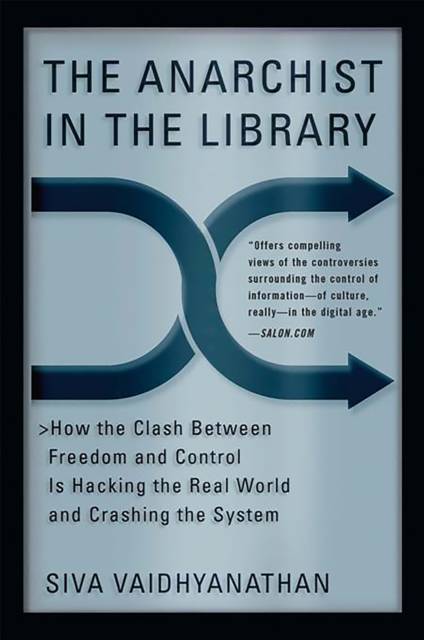
- Afhalen na 1 uur in een winkel met voorraad
- Gratis thuislevering in België vanaf € 30
- Ruim aanbod met 7 miljoen producten
- Afhalen na 1 uur in een winkel met voorraad
- Gratis thuislevering in België vanaf € 30
- Ruim aanbod met 7 miljoen producten
Zoeken
The Anarchist in the Library
How the Clash Between Freedom and Control Is Hacking the Real World and Crashing the System
Siva Vaidhyanathan
Paperback | Engels
€ 30,95
+ 61 punten
Omschrijving
From Napster to Total Information Awareness to flash mobs, the debate over information technology in our lives has revolved around a single question: How closely do we want cyberspace to resemble the real world? Siva Vaidhyanathan enters this debate with a seminal insight: While we've been busy debating how to make cyberspace imitate the world, the world has been busy imitating cyberspace. More and more of our social, political, and religious activities are modeling themselves after the World Wide Web.Vaidhyanathan tells us the key information structure of our time, and the key import from cyberspace into the world, is the "peer-to-peer network." Peer-to-peer networks have always existed -- but with the rise of electronic communication, they are suddenly coming into their own. And they are drawing the outlines of a battle for information that will determine much of the culture and politics of our century, affecting everything from society to terrorism, from religion to the latest social fads. The Anarchist in the Library is a radically original look at how this battle defines one of the major fault lines of twenty-first-century civilization.
Specificaties
Betrokkenen
- Auteur(s):
- Uitgeverij:
Inhoud
- Aantal bladzijden:
- 272
- Taal:
- Engels
Eigenschappen
- Productcode (EAN):
- 9780465089857
- Verschijningsdatum:
- 1/05/2005
- Uitvoering:
- Paperback
- Formaat:
- Trade paperback (VS)
- Afmetingen:
- 173 mm x 203 mm
- Gewicht:
- 231 g

Alleen bij Standaard Boekhandel
+ 61 punten op je klantenkaart van Standaard Boekhandel
Beoordelingen
We publiceren alleen reviews die voldoen aan de voorwaarden voor reviews. Bekijk onze voorwaarden voor reviews.











